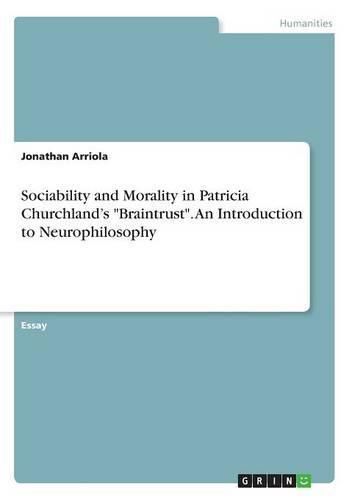Sociability and Morality in Patricia Churchland's Braintrust. An Introduction to Neurophilosophy
Jonathan Arriola

Sociability and Morality in Patricia Churchland’s Braintrust. An Introduction to Neurophilosophy
Jonathan Arriola
Essay from the year 2014 in the subject Philosophy - Practical (Ethics, Aesthetics, Culture, Nature, Right, …), grade: 10/10, language: English, abstract: The aim of this paper is to rebuild the main hypothesis of Churchland’s Braintrust (2011) postulating that the origins of sociability and morality lie in the neuro-biology of attachment and bonding. The author sides with Hume’s conception of morality as grounded in sentiments but Churchland conceives them principally in biological terms by tracing them back to the neurocircuitry of the brain and hormones. Particularly, she puts forward the hypothesis that oxytocin (OXT) is the responsible for the social and moral behavior of mammals, including humans. By the end of this paper, we will address Churchland’s criticism of the moral innateness thesis and we will briefly discuss the strong and weak points of her proposal.
This item is not currently in-stock. It can be ordered online and is expected to ship in approx 2 weeks
Our stock data is updated periodically, and availability may change throughout the day for in-demand items. Please call the relevant shop for the most current stock information. Prices are subject to change without notice.
Sign in or become a Readings Member to add this title to a wishlist.


